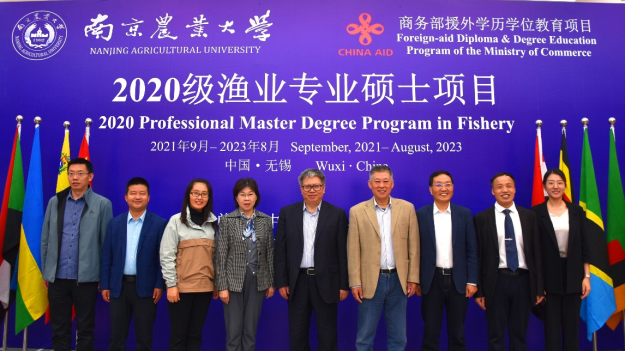On October 18, the opening ceremony of the “2020 Professional Master Degree Program in Fishery” co-sponsored by the Ministry of Commerce and the Ministry of Education was held in Wuxi Fisheries College, Nanjing Agricultural University.
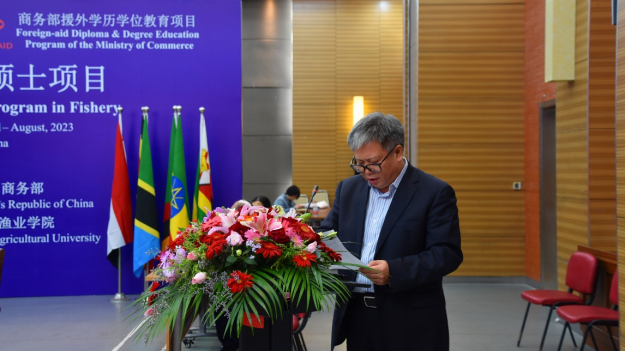
At the opening ceremony, Chen Jinfa, Party Secretary of the Chinese Academy of Fishery Sciences (CAFS), introduced the important achievements of the CAFS in terms of high-level talent training in fisheries, cooperation in fisheries science and technology at home and abroad, and the important contribution made by Wuxi Fisheries College to the promotion of technologies and models on green and sustainable fisheries.
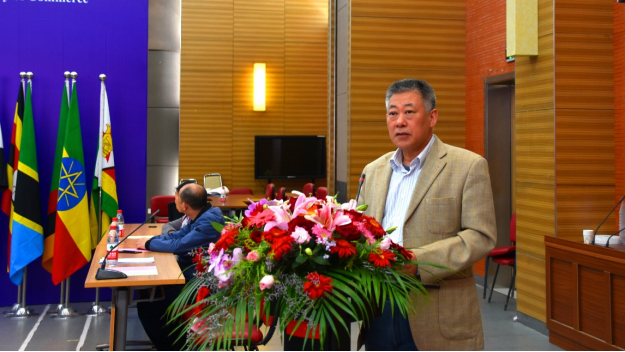
Prof. Ge Xianping, Party Secretary of FFRC, hoped that the students can overcome difficulties, learn professional knowledge, and do scientific research well. Zhao Yuhong, deputy director of the Foreign Investment and Economic Cooperation Division of Jiangsu Provincial Department of Commerce, hoped that the students will not only become high-end talents in the field of fishery in the future, but also become a bridge for Sino-foreign technical cooperation and a link for economic cooperation. Dean Han Jiqin of the College of International Education of Nanjing Agricultural University expected that students will communicate more, share more, and practice more, so as to continuously improve the level of professional knowledge in the field of fishery. Deputy Dean Zhang Aying of the Graduate School hoped that all students will work together to promote the new development of fishery industry.
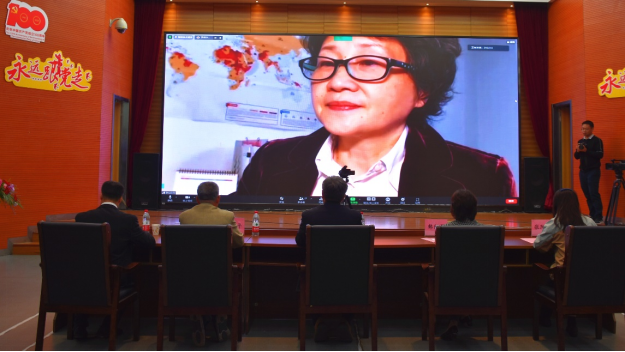
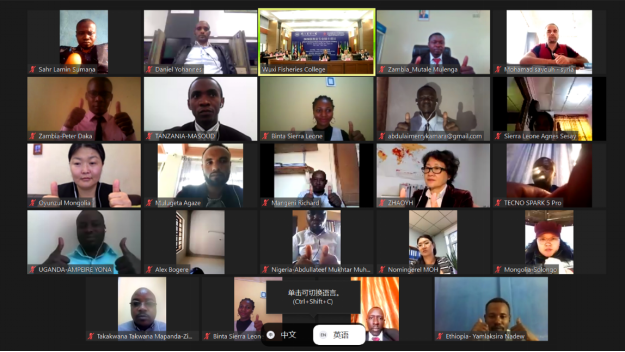
In his speech, Mr. Peter Dhaka, the student representative from Zambia, thanked the Chinese government for providing generous funding for the students’ study. He hoped to work with other students to contribute to the sustainable development of fisheries and aquaculture in various countries.
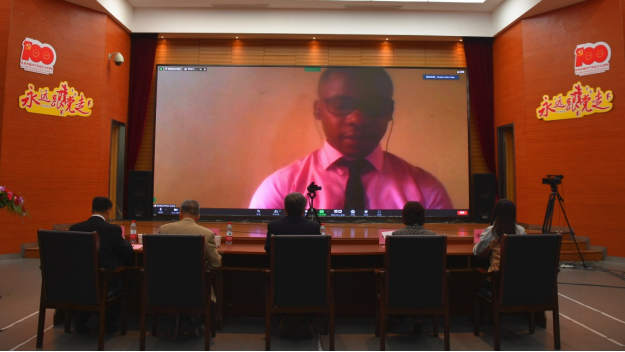
The “2020 Professional Master Degree Program in Fishery” is the sixth high-end foreign aid degree education program in fisheries jointly organized by the Ministry of Commerce and the Ministry of Education, which admitted 24 students from 12 countries, including Venezuela, Mongolia, Sudan, Syria, Rwanda, Tanzania, Zambia, Liberia, Zimbabwe, Ethiopia , Sierra Leone and Uganda.
